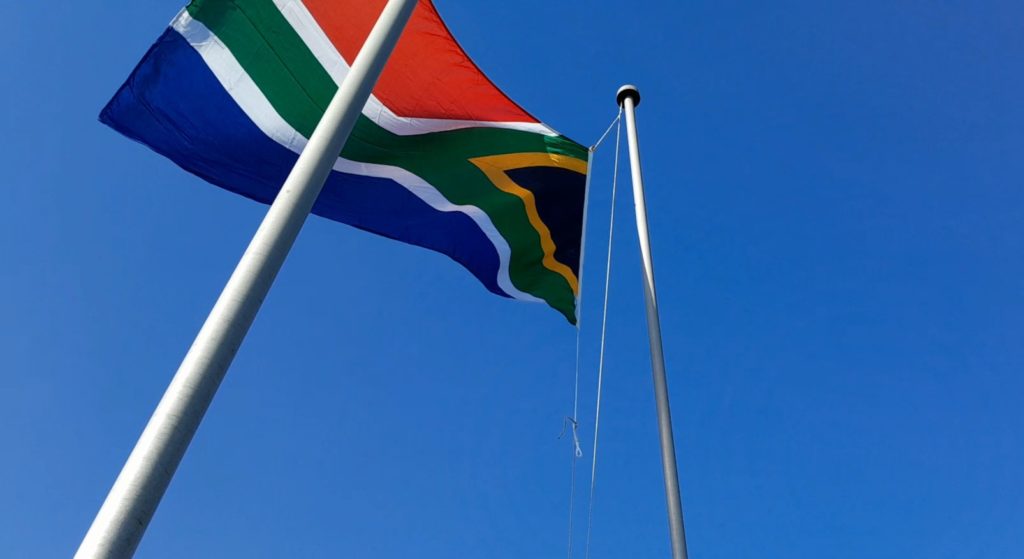By Ndumiso Khuzwayo
South African politics rarely lack drama, and we have accepted the theatrics as part of the deal. However, the last week offered us a glimpse of how easily serious governance issues can be drowned out by politicians’ point-scoring.
Just recently, ANC president Cyril Ramaphosa put a spanner in the works when he boldly told ANC councillors he was addressing in Soweto that they could learn a thing or two from DA-led municipalities when it came to local governance and service delivery.
This political storm, which was dubbed by many as the DA’s free ‘PR campaign’, comes just less than a year before the upcoming 2026 Local Government Elections, through which the ANC hopes to reclaim its support.
Public service or political point-scoring?
On the surface, Ramaphosa’s utterances were a remarkable call for improvement for ANC councillors to pull up their socks. After all, in a healthy democracy, political parties borrow best practices from one another all the time to improve service delivery for communities they serve. Yet, this remark landed like a grenade in the country’s political scene.
DA supporters celebrated this as proof that their governance is best and is what South Africans need, sharing clips of Ramaphosa’s address across social media. Leading the pack, Helen Zille, chair of the DA’s federal council, wasted no time turning the moment into a campaign. “If you don’t believe me, ask President Ramaphosa,” is a line I bet we are going to hear a lot now going towards the local government elections.
Meanwhile, ANC leaders scrambled to spin the statement. Ramaphosa later clarified that he was speaking strictly about financial compliance, and not service delivery. Clean books, he said, are not the same as transforming people’s lives. But the political damage was done already.
This brief exchange brings us to a deeper question we ought to ask and seek answers to: When did our politics become more about point scoring than public service? South Africa’s Constitution sets a clear mandate for government; and that is to heal the divisions of the past, protect every citizen equally, improve the quality of life for all, and build a united, democratic society. In other words, the government exists to serve people, not to burnish party reputations. Yet, the responses to Ramaphosa’s comments are a troubling indication of
how far we seem to have drifted from those ideals of the founding of our democracy.
GNU…seemingly not about national interests
For the first time in history, the ANC fell below 50% in the national vote in the last general elections. The ANC and the DA -and other smaller parties- formed a coalition, now called the ‘Government of National Unity’ (GNU). As to be expected, the two political parties appear to be locked in a contest for dominance, performing the episodes of the ongoing contest at every opportunity they get. I would have expected the GNU to encourage cooperation and compromises, but instead, the relationship between the two largest partners often resembles open warfare. Every public disagreement becomes ammunition for the other, and every statement a test of loyalty to the GNU.
The irony is hard to miss, too. Since 2016, both parties have steadily lost voter support. The ANC has gone from 62% to about 40% in 2024, and the DA from 22% to roughly 21%. If the goal of a constant confrontation is to win back voters, it has clearly not been working for the past 10 years they’ve been at it.
GNU politics have not inspired more thoughtful power-sharing moves. Instead, ministerial appointments after 2024 appear to be more tactical manoeuvres than choices made for the good of the public and for the better use of the GNU. A former minister of education, Angie Motshekga, was shifted to defence, prompting questions on whether the move strengthened the defence of the country or the ruling party’s influence and strength in the GNU. Such decisions suggest that holding offices in the current political scene in South Africa is more like chess, and we are the pawns in their game.
The danger in this is that ordinary South Africans are left wanting. As a country, we are suffering from inequality, and if we have politicians who hold certain offices as bargaining chips in endless games for influence, we are in trouble. The daily reality of having accessible clean water, reliable electricity and better health care lags behind while leaders compete for headlines.
Ramaphosa’s initial point was precisely that governance should focus on measurable improvement in people’s lives. Instead of embracing that challenge, the opposing party turned it into another round of ANC versus DA, a battle they’ve both been losing in the IEC polls, by the way.
This also exposes deeper currents in our politics. When ANC national chairperson, Gwede Mantashe, responded to the claims that DA municipalities are better run, he accused the DA of serving “white suburbs” while the ANC shoulders the burden of the deep rural and townships, stirring this debate into racial grievance. Rather than a discussion of municipal management, it became another reminder of our country’s unresolved divides and the drawing of the race card that political elites can use when it suits them.
South Africans deserve better
These power struggles matter because they ruin the very purpose of a democratic government. South Africa rejected monarchy and one-man rule precisely to prevent an individual from having too much power. The point of a democracy is to distribute authority so that citizens, not politicians, hold the ultimate say. When leaders treat governance as a path to personal advancement and every decision is a move in a no-win contest, the founding principles are betrayed.
The lesson of the past week should be obvious. Ramaphosa’s comment could have been an announcement for a genuine collaboration and an opportunity for the ANC to learn from the DA and the DA to learn from the ANC to transform historically-neglected communities. Instead, it became another skirmish in a feud that already has both parties’ public trust.
Until the ANC and the DA place public service above spectacle, the constitutional promise to “improve the quality of life of all citizens” will remain unfulfilled. South Africans deserve a government that treats them not as pieces of chess on a political chessboard but as the very reason the board exists. The sooner our leaders remember that, the sooner democracy can begin to deliver what it was designed to achieve, a society where power is used to uplift the people, not oneself.


